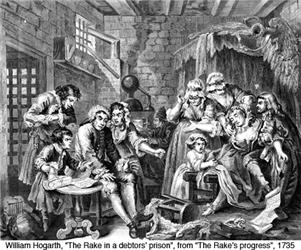The Expansion of Europe (Social/Economic)
 |
| Women spinning yarn in the cottage industry |
 |
| Oliver Cromwell |
Oliver Cromwell: "A few honest men are better than numbers."
The Spanish, another major player in European economics, bought Louisiana from the French in 1763. Silver production flourished again, despite its drop in the earlier seventeenth century. Spanish aristocrats developed "debt peonage" which was similar to the system of serfdom. Here, the one who owned the land -- a planter or rancher -- would supply the workers with basic resources and a little cash but enough so that the subordinates were always in debt.
1602
Dutch East India Company is formed
The Portuguese spice trade yields much control to the Dutch East India Company in the Indian Ocean. As a consequence, the Indian Ocean trade was drastically transformed. Once independent people, the Dutch oppressed them into dependents.
 |
| Oliver Cromwell |
Navigation Acts
Oliver Cromwell, in England, established a mercantile system which aimed to increase private wealth and military power. The acts required that goods be carried on British owned ships only. By that, British colonies exercised a virtual monopoly on trade. Also viewed as a form of “economic warfare” by getting rid of competition, the economically flourishing Dutch were initially targeted.
Increase in guilds
In the city of Paris alone, the number of guilds went from 60 to 129 by 1691. The guild system predominated towns and cities, where its exclusive membership of urban artisans refused women, Jews, and many foreigners.
English industry becoming more rural
As opposed to urban, the English industry became increasingly rural. The putting-out system was where the merchant loaned raw materials to those who worked under him and manufactured the raw goods in their homes before they returned it to the merchant. It grew slowly popular within continental countries.
 |
| Trade routes of the Atlantic Slave trade |
Peak of Atlantic Slave trade
With 6.5 million slaves shipped across the Atlantic, the conditions steadily grew more cruel as Africans were herded into the middle passage. Approx. 15% died from transit alone. The number of slaves being transported heightened especially as goods like sugar and cotton became high in demand.
 |
| Britain-France Maritime Wars |
Britain-France maritime wars
These wars decided which side would claim European land and profits gained during its expansion overseas, and who would retain the title as the leading maritime power.
Distribution of English nails
English nail industry was being widely distributed to colonies thanks to flourishing foreign trade.
Parliament movement to enclose land
Parliament passes legislation which calls for enclosed land; as a result, the population increased. The economic implications also included a market-oriented agriculture and a land proletariat. English and Scottish landowners grew competitive in their profits in renting out land to middle class farmers.
Guilds abolished
Many eighteenth century critics deemed the guilds “outmoded” which inhibited technical processes and progressive thought. Anne-Robert-Jacques Turgot, a reform minister, finally outlawed French guilds.
Saint Domingue economic success
Saint-Domingue, or modern day Haiti, became the leading force in coffee and sugar production. With its five hundred thousand slaves, Saint-Domingue became the most productive colony within the New World.
Parliament condemns slavery
Although the Parliament bans slavery, British slave trade remains prominent for decades to come within the Americas.
Increase of farming yields
Although the number of workers on farms increased by 14%, farming yields increased by a startling 300% more food than that of the seventeenth century. The rapidly expanding European population was able to have their needs satisfied— the growth was helped by land enclosures.









0 comments: